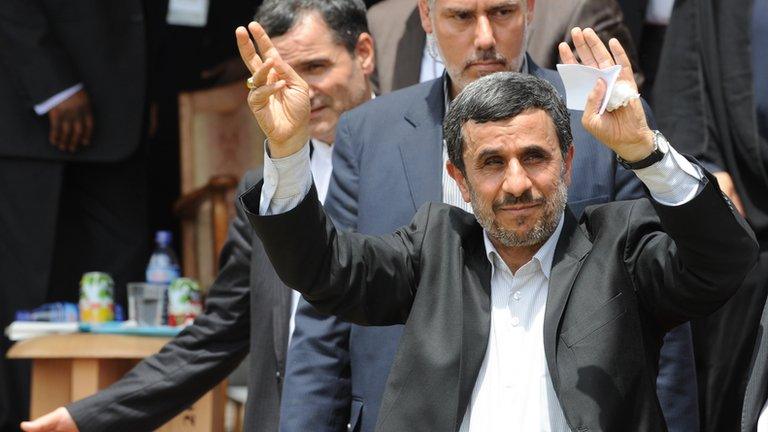Iran election: Fierce exchanges in final TV debate
- Published
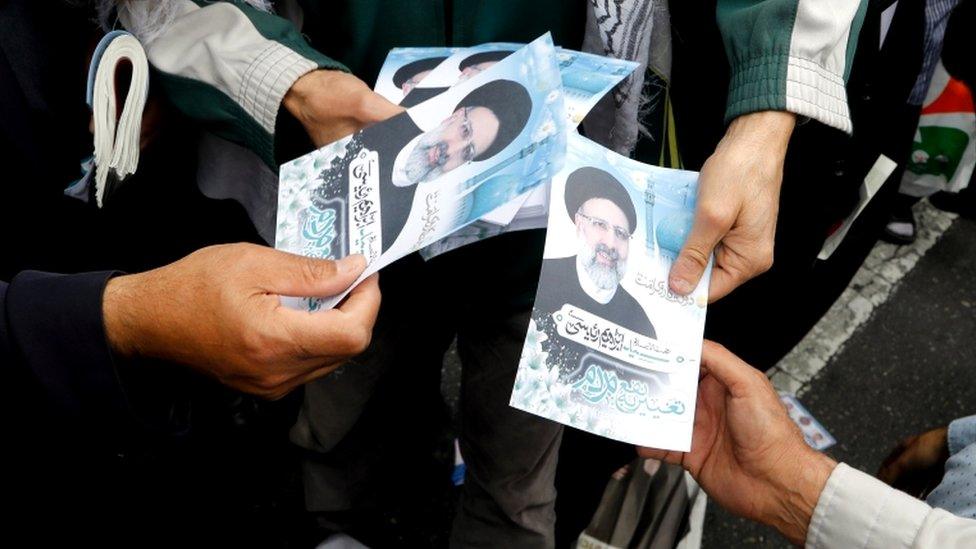
Flyers are handed out for candidate Ebrahim Raisi in Tehran
Angry exchanges have erupted during the final televised debate before Iran's presidential election next week.
President Hassan Rouhani accused one of his rivals of abusing religion to win power and another of wanting to beat up students.
In return he was accused of corruption, economic mismanagement and failing to bring any benefits from a landmark nuclear deal.
Mr Rouhani is seeking a second four-year term in next Friday's election.
Although seen by some as a reforming figure, Mr Rouhani has cast himself more as a moderate pragmatist working within the establishment.
It was, however, clear that the reformist vote remained an important focus, given the three hours of fierce exchanges with hardline opponents.
Cleric Ebrahim Raisi, seen by some as a protégé of Supreme Leader Ayatollah Ali Khamenei, and Tehran Mayor Mohammad Baqer Qalibaf, a former Republican Guard commander and police chief, were his main targets.
Mr Rouhani said: "Mr Raisi, you can slander me as much you wish. As a judge of the clerical court, you can even issue an arrest order. But please don't abuse religion for power."
The president attacked Mr Qalibaf's handling of protests when police chief in the late 1990s and early 2000s.
"You wanted to beat up students," Mr Rouhani said.
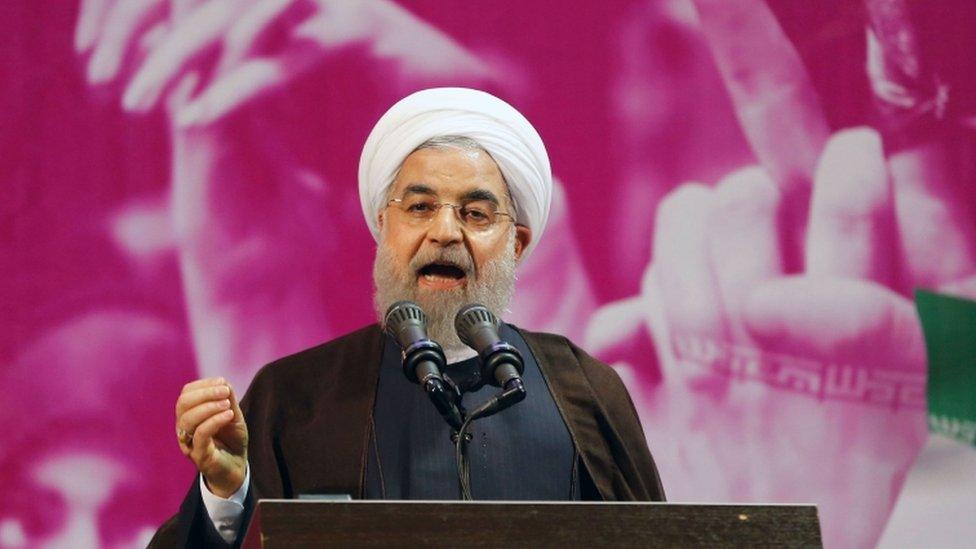
President Rouhani is seen as the frontrunner in opinion polls
His opponents focused on his failure to make economic progress despite the lifting of some sanctions following the 2015 agreement with global powers on the curbing of Iran's nuclear programme.
Mr Qalibaf said: "The country is facing an economic crisis, with unemployment, recession and inflation. A tree that has not borne any fruit in four years will not yield anything positive in the future."
Mr Raisi said 250,000 small businesses had closed and he called for an increase in cash payments to the poor.
Mr Rouhani insisted money was becoming available for investment and that he would work to lift the remaining sanctions.
But the fiercest clashes were on corruption.
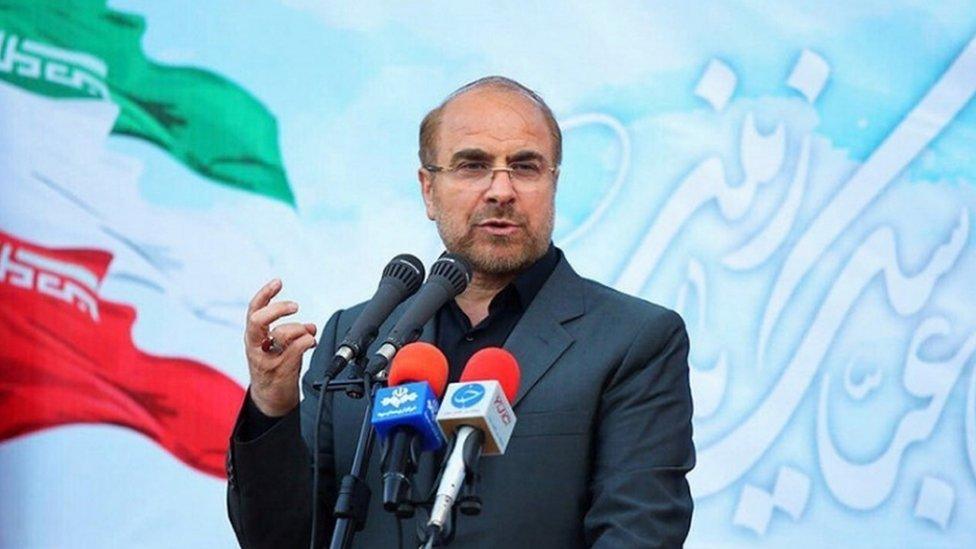
One of the hardliners challenging Mr Rouhani is Tehran Mayor Mohammad Baqer Qalibaf
Mr Raisi alleged Mr Rouhani had blocked an inquiry into corruption charges against relatives and claimed some of his ministers were linked to illegal imports.
The president was also accused of receiving heavily subsidised public properties.
Mr Rouhani in turn alleged public funds had been diverted to Mr Raisi's campaign, adding: "Some security and revolutionary groups are bussing people to your campaign rallies... Who finances them?"
He also said that if he had published a dossier he had obtained in 2005 on Mr Qalibaf "you would not be sat here today".
The other three candidates are Eshaq Jahangiri, Mostafa Hashemitaba and Mostafa Mirsalim.
All the candidates have been screened for their political and Islamic qualifications by the Guardian Council, made up partly of clerics.
If no candidate wins 50% of the vote on 19 May, there will be a run-off between the top two one week later.
- Published16 May 2017
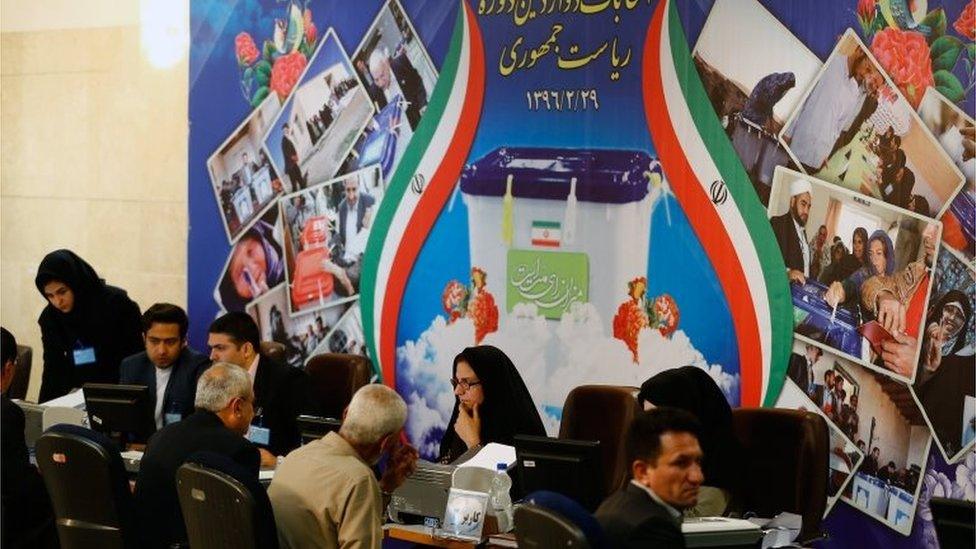
- Published28 April 2017
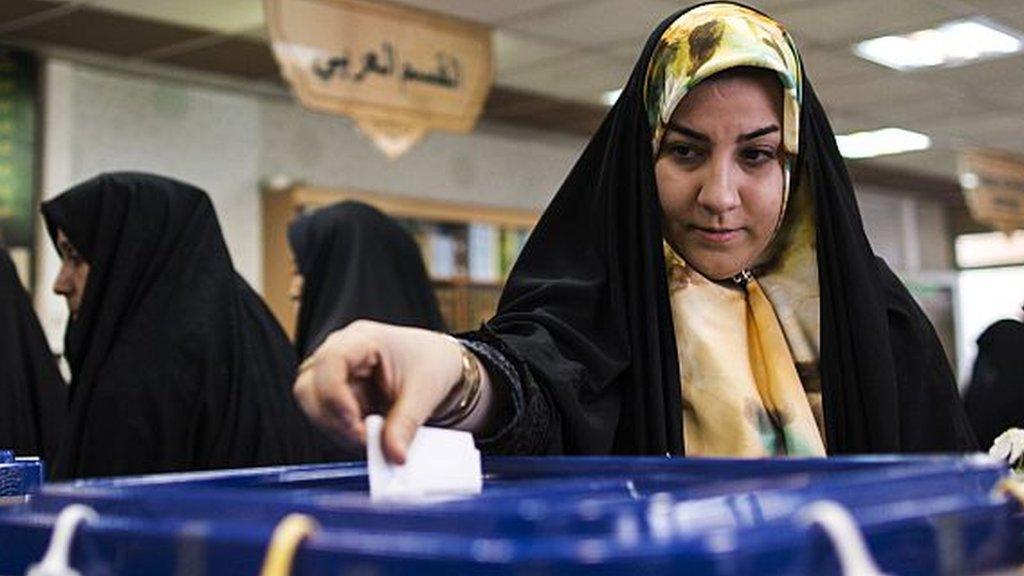
- Published12 April 2017
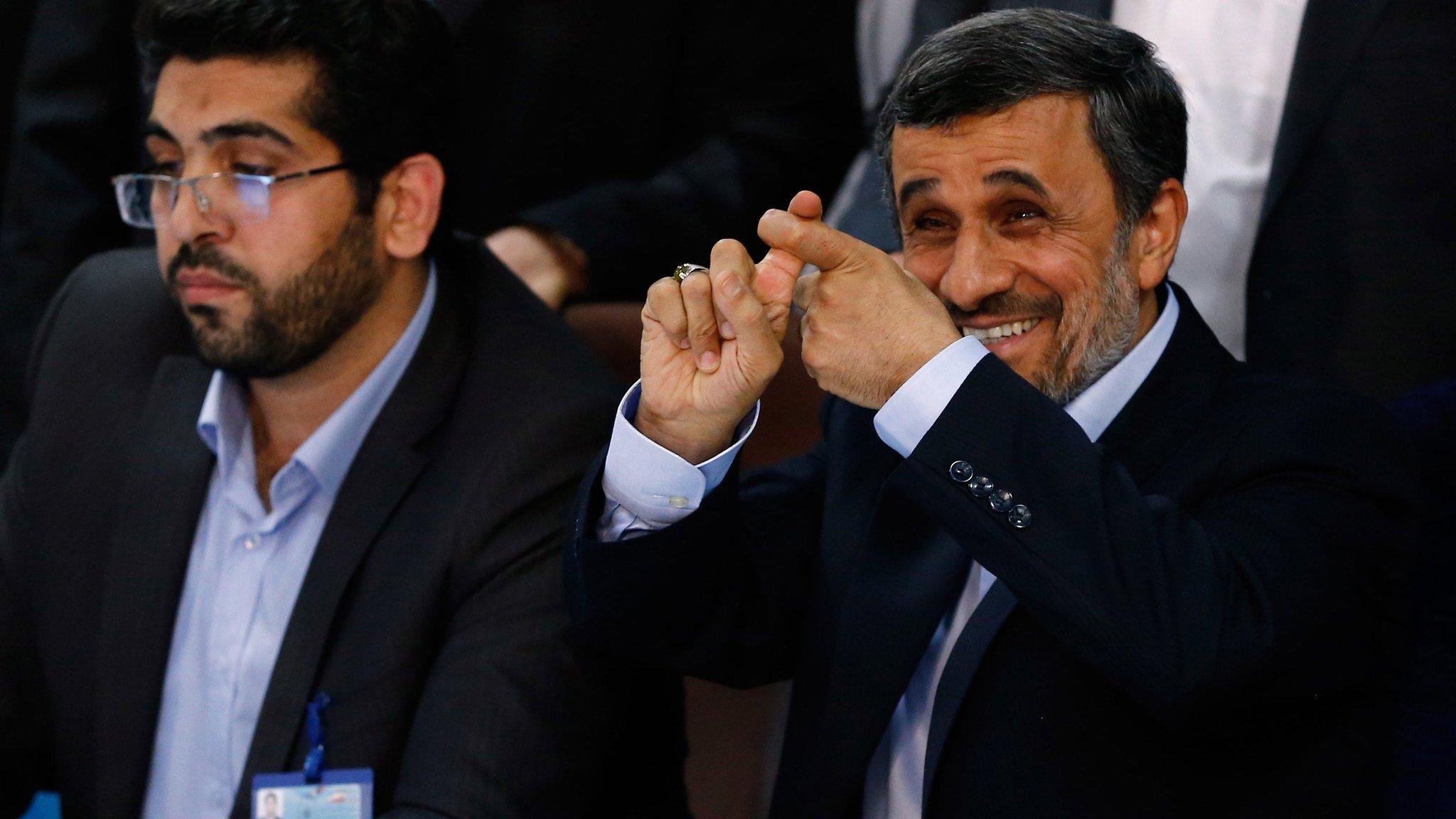
- Published4 June 2013
